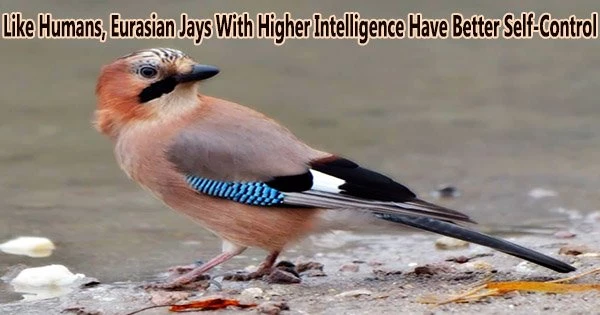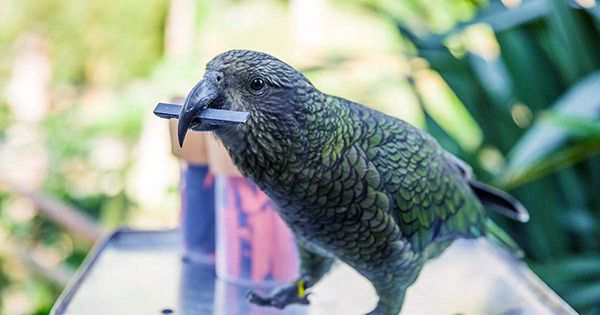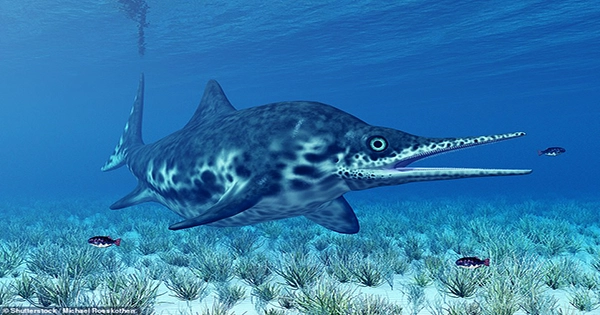According to a study, Eurasian jays can pass a mock “marshmallow test,” and those who exhibit the most self-control also perform well on intelligence tests. The relationship between self-control and intellect in birds has never been demonstrated before.
Self-control, or the capacity to resist temptation in favor of a superior but delayed reward, is a crucial characteristic that supports sound judgment and long-term planning.
Jays belong to the corvid family, which is often known as the “feathered apes” because of how cognitively competitive they are with non-human primates. To store food for later, corvids hide it, or “cache,” it. In order to prepare for future meals, they must postpone their urge for instant fulfillment. The researchers hypothesize that this may have influenced how self-control in these birds evolved.
In prior research on humans, chimpanzees, and cuttlefish, the researchers found a relationship between self-control and intellect. The greater the intelligence, the greater the self-control.
The most recent findings reveal a connection between intelligence and self-control in a variety of distantly related animal groups, indicating that this relationship has independently developed over a number of times.
Jays are most susceptible to having their caches stolen by other birds among all the corvids. They can wait for the ideal opportunity to stow their food away without being seen or heard thanks to their self-control.
The results are published today in the journal Philosophical Transactions of the Royal Society B.
To test the self-control of ten Eurasian jays, Garrulus glandarius, researchers designed an experiment inspired by the 1972 Stanford Marshmallow test in which children were offered a choice between one marshmallow immediately, or two if they waited for a period of time.
The birds’ performance varied across individuals some did really well in all the tasks and others were mediocre. What was most interesting was that if a bird was good at one of the tasks, it was good at all of them which suggests that a general intelligence factor underlies their performance.
Dr. Alex Schnell
The jays received mealworms, bread, and cheese instead of marshmallows. Mealworms are a popular favorite; bread and cheese are close behind, however some people prefer one over the other.
The birds had to decide between mealworms that they could see but couldn’t reach right away until a Perspex screen was erected and bread or cheese that were immediately available. Could they delay immediate gratification and wait for their favorite food?
The amount of time there was a delay before the mealworm became accessible if the bird had resisted the urge to consume the bread or cheese was evaluated, ranging from five seconds to five and a half minutes.
All the birds in the experiment were able to wait for the worm, however some birds were able to wait for a lot longer than others. Top of the class was ‘JayLo’, who ignored a piece of cheese and waited five and a half minutes for a mealworm. The worst performers, ‘Dolci’ and ‘Homer’, could only wait a maximum of 20 seconds.
“It’s just mind-boggling that some jays can wait so long for their favorite food. In multiple trials, I sat there watching JayLo ignore a piece of cheese for over five minutes I was getting bored, but she was just patiently waiting for the worm,” said Dr. Alex Schnell at the University of Cambridge’s Department of Psychology, first author of the report.
When offered bread or cheese, the jays appeared to be trying to avoid temptation by turning their heads away. Children and chimpanzees both exhibit behaviors that are comparable.
Additionally, the researchers gave the jays five cognitive exercises that are frequently used to gauge overall intelligence. The birds who did better on these activities were able to hold off on the mealworm incentive for a little longer. This shows that in jays, self-control and intelligence are related.
“The birds’ performance varied across individuals some did really well in all the tasks and others were mediocre. What was most interesting was that if a bird was good at one of the tasks, it was good at all of them which suggests that a general intelligence factor underlies their performance,” said Schnell.
The jays also adjusted their self-control behavior according to the circumstances: in another experiment where the worm was visible but always out of reach, the jays always ate the immediately available bread or cheese.
When compared to their third most liked food as the immediate reward, the amount of time they were willing to wait for the worm decreased. This adaptability demonstrates that jays only postpone pleasure when it is necessary.
Researchers have discovered that kids who do the Stanford marshmallow test have a wide range of self-control, and that this trait is related to general intelligence. Children who can withstand temptation longer also perform better on a variety of academic assignments.
















